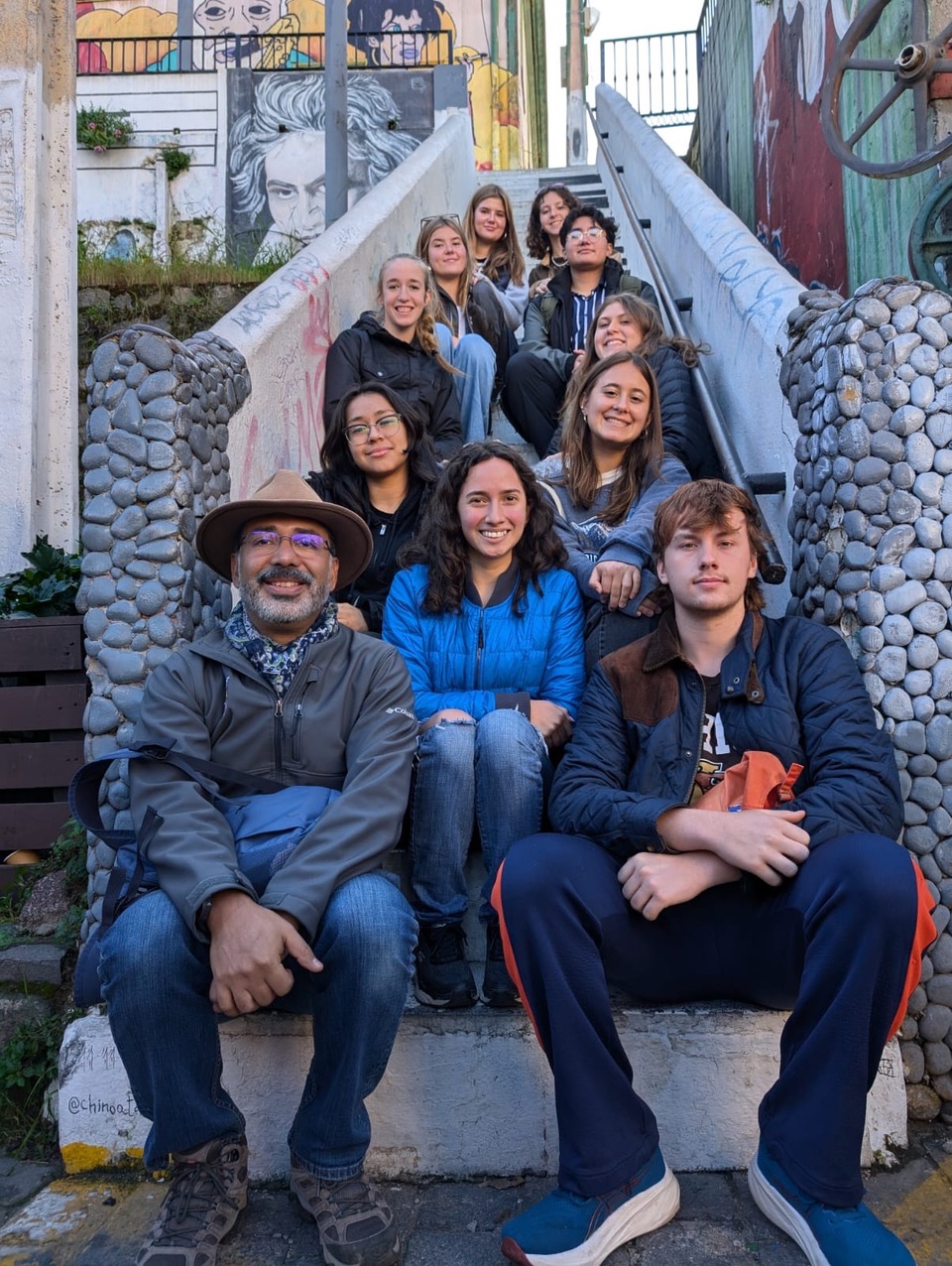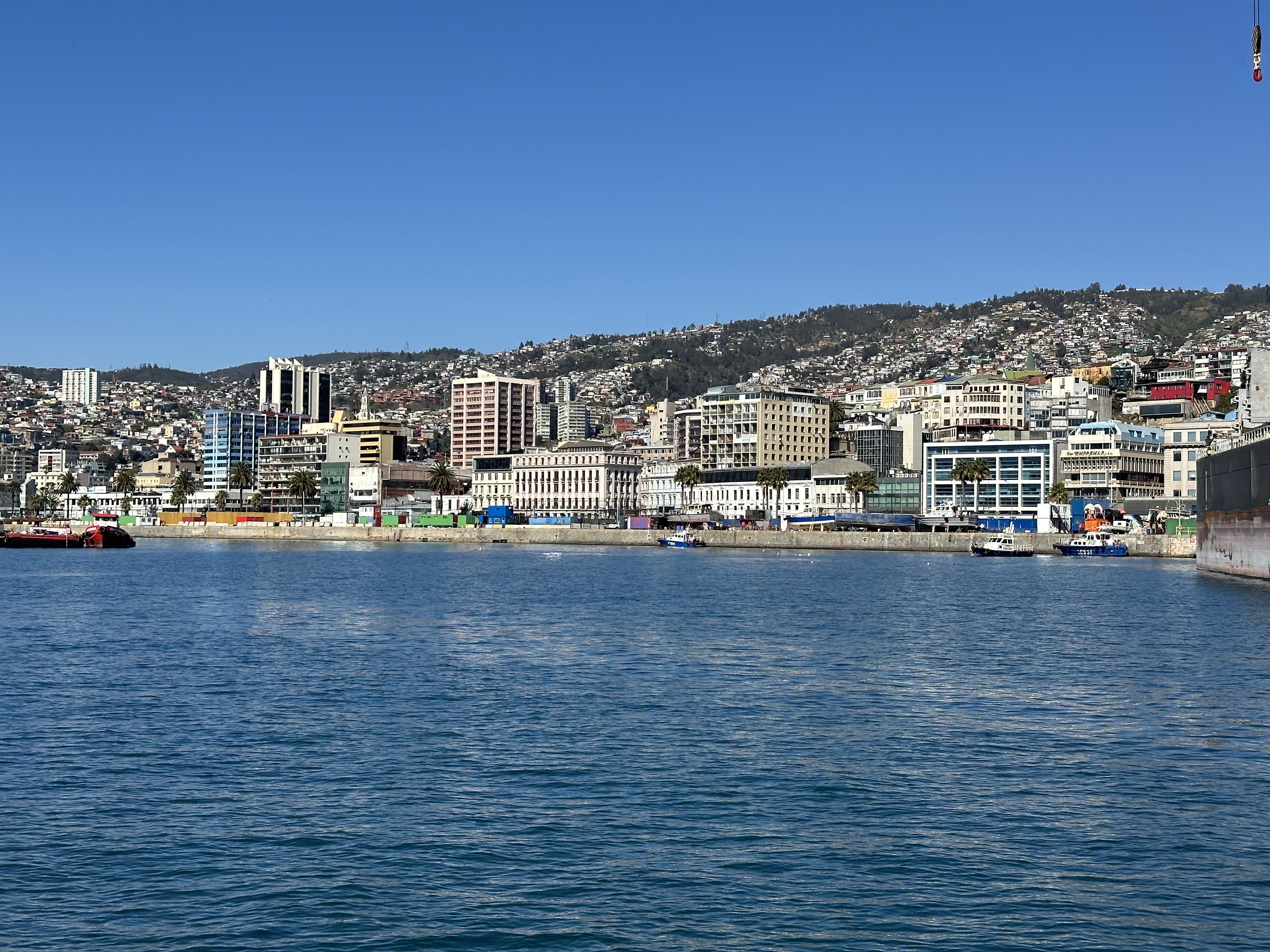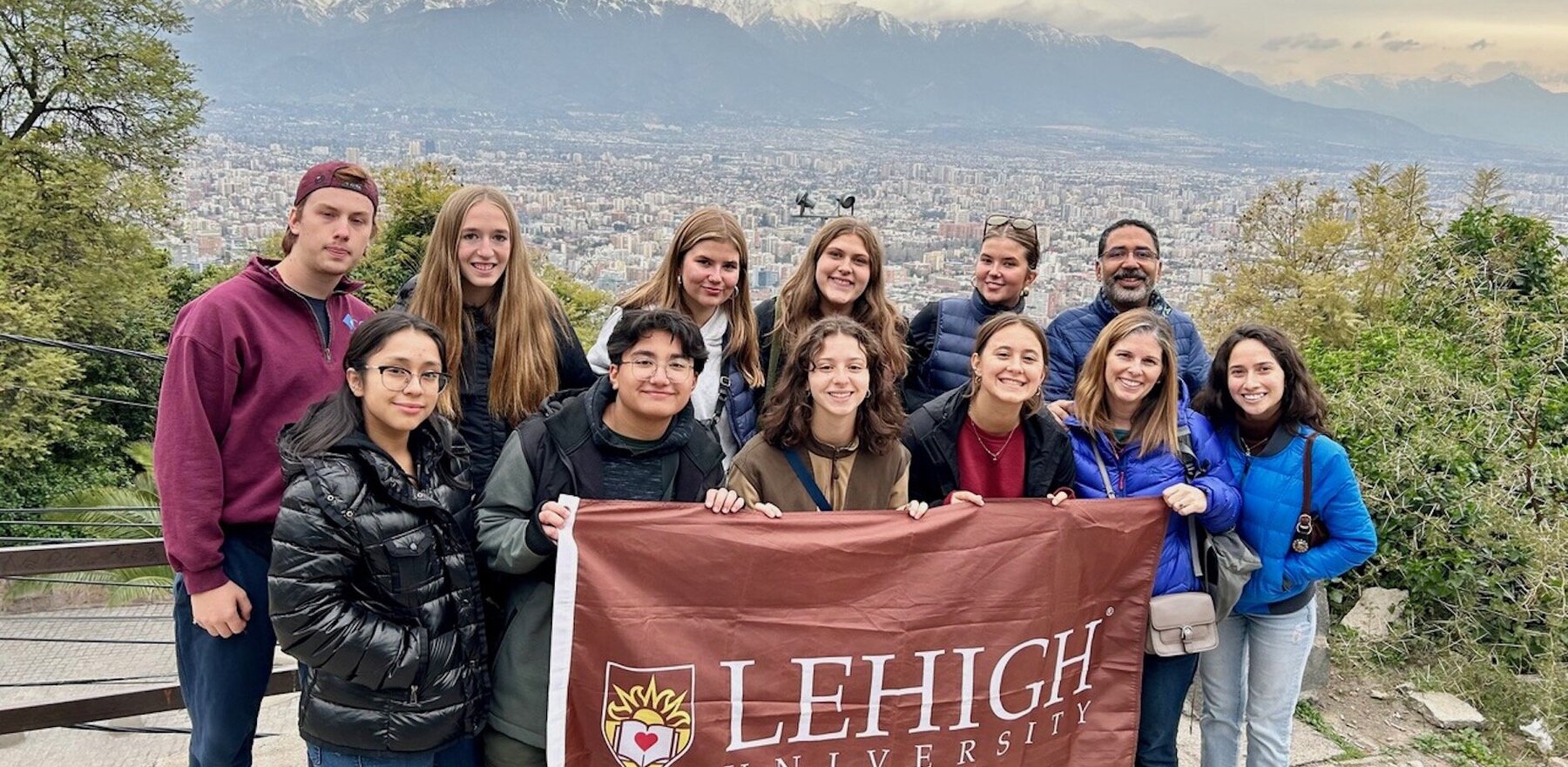Lehigh Launch Chile, a hands-on, semester-long study abroad program for first-year students, offers transformative global experiences while also providing unexpected research opportunities for faculty.
As faculty director of Lehigh Launch Chile, Hugo Cerón-Anaya has had the opportunity to provide first-year Lehigh University students with new experiences, knowledge, and global perspectives during a semester of hands-on learning in Chile.
But the experience also proved beneficial to Cerón-Anaya from a research perspective, helping him expand his professional network, attend conferences and academic talks, and elevate the international reach of his research.

“My research took a fantastic turn by participating in Lehigh Launch Chile,” Cerón-Anaya said. “The networks I found in Chile were quite sophisticated and quite global, and the program allowed me to expand my network in countries that I have barely touched before.”
Lehigh Launch Chile is an experiential, integrative learning experience for first-year students that offers hands-on learning and challenging coursework in a living-learning community outside the classroom, in the Chilean capital of Santiago and beyond.
This is the second year Lehigh Launch is being offered in Chile. It had been offered in Ecuador for two years before moving to Chile last year.
The cohort of students for this year’s Lehigh Launch Chile has already been selected. The upcoming program includes site visits to two different observatories, a national park visit to observe migrating fin whales, and the observance of a shooting star shower.
Cerón-Anaya wants to increase faculty awareness of the program and its research value. He encourages faculty to volunteer to help direct the program in future years, and explore collaborative opportunities via guest talks and Zoom sessions, even if they can’t travel.
“I think there’s a misconception among faculty that working with such a program hinders research productivity, but in fact the opposite is true,” Cerón-Anaya said. “Even limited involvement can foster new research partnerships. I can speak from experience, because directing Lehigh Launch Chile has significantly advanced my own research.”
Cerón-Anaya’s research focuses on social inequality and elite perceptions of poverty. He is currently conducting focus groups and interviews for a research project in Guadalajara, Mexico.
During his time in Chile, he connected with respected researchers, attended selective conferences, and expanded his network across the Southern Cone and Europe via Chilean connections.
“Lehigh is an R1 institution, and so research output is critical for faculty,” Cerón-Anaya said. “As a result, some faculty members may avoid programs like this until late in their careers due to fear of hindering research. But doing so would be a mistake.”

Lehigh Launch Chile attracts top-tier students, some of whom turn down offers from prestigious universities for the chance to participate in the program, Cerón-Anaya said. The cohort fosters strong social connections among students, and the program itself creates long-term value for Lehigh’s reputation by producing high-achieving alumni.
Cerón-Anaya emphasizes that Lehigh Launch Chile offers valuable research opportunities across a wide range of academic disciplines. For engineers, the country presents a unique environment to study seismic activity, infrastructure, and the resilience of tall buildings in one of the most earthquake-prone regions in the world.
In the fields of astronomy, optics, physics, and mathematics, Chile’s combination of high-altitude locations, extremely dry climate, and low light pollution make it one of the premier locations for astronomical research globally, Cerón-Anaya said.
Computer scientists and roboticists may also find compelling opportunities, as Chilean observatories depend on cutting-edge software and robotics to operate their highly sophisticated equipment. Environmental scientists benefit from Chile’s proximity to Antarctica, making it an ideal setting for research on climate change, shifting ocean currents, and related ecological impacts.
Meanwhile, for scholars in economics and business, Chile provides a rich case study as the first country in Latin America to adopt neoliberal economic policies following the 1973 coup—resulting in both significant economic growth and deep social inequality.
